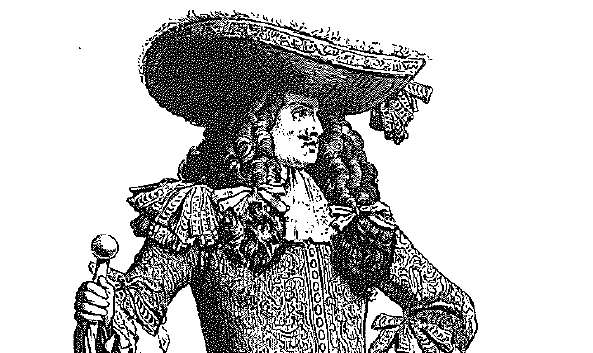Hillman writes of “the governance of the gods.” It is morenreasonable to assume that both men are attracted to the Buddhistnconcept, according to which there is no self, only a flux ofnsensations cut up into discrete and illusionary consciousnesses.nThis view was shared by philosophers from Heraclitus to Nietzsche,nand it has had decisive influence on devotees of Orientalnwisdom. Jung discovered this wisdom after his encounter withnmedieval alchemy. In jiis view, which finds wide acceptancentoday, the alchemist sought not gold but the integration of personality,njust like the modern psychologist.nPsychological therapy thus claims to meet the religiousndemands of our time and aspires to take the place of religion innhealing the soul. The analyst finds the soul of modern manndesiccated, bereft of a sense of the sacred, the myth, the fantastic.nHe also perceives the disproportion between dehumanizingntechnological trends and the precepts of a Christian milieu.nThere remain two possibilities: one is to lead the soul back tonwhat is called the “pure meaning” of Christianity, the other isnto lead itfartherh^jck—to pagan polytheism. Both paths leadnto the root of the modern crisis of the soul and its religiousnpredicament.nU, ‘ nraveling the Christian roots has come to mean andialogue with, and learning from. Oriental wisdom. Several—nincluding Protestant theologian Jiirgen Moltmann and W.nJohnston, S.J.—maintain that Christianity has absorbed annoverdose of Hellenic philosophy (an incorrect evaluation) thatnhas led not only to rigid institutionalization, but also to thendiscarding of tradition: prayer, the integral vision of body andnsoul, the ecclesia spiritualis, the true gnosis. Johnson insistsnthat the meaning of Christianity can be recaptured onlynthrough a new dialogue with Oriental religions and culmres,nwhich he considers a more earthshaking and enriching encounternthan the one between Judaism and the Hellenistic age.nThe Christian is told to practice Zen and Yoga, to immersenhimself in the study of appropriate postures for meditativenprayer, and to rid himself of emotions (apatheia). At the end ofnthis process he will have acquired “a compassionate psychologicalnknowledge of everything in the individual human beingnthat resists the purity of the heart,” as Needleman describes it.nIf this is the path toward purified religious practice, on whatnpath does revived polytheism travel.? The modern concept ofnpolytheism does not locate its gods on Olympus, but rather innan autonomous soul. Tme, thejungians, the stmcturalists, andna spectmm of other schools claiming Husserl and Heidegger asnmentors, speak of polytheism, archetypes, etc. as if they weren”gods and daemons” outside the soul, thus objectively real.nNevertheless, they arc forced to admit that these agents (somencall them angels) are imaginary and mythical beings projectednby the soul onto its own screen. Walter Otto, student of Greeknreligion, wrote that when Athena is seen guiding Odysseus, itnshould be interpreted as the Grecian understanding of man’sn’ RELIGION, PSYCHOLOGY, & THE MODERN SOUL •nfrailty and a suggestion that human actions have a wide marginnof uncertainty and mystery wherein the gods and goddesses arenmasters.nArchetypal psychology, the psychology of Jung’s collectivenunconscious, delves into this penumbra of the human soul andnelaborates a therapy in opposition to Freudians on the one side,nand Skinnerians on the other. But the ideological substratumnof Jungian therapy is nonetheless a new religion centerednaround the soul as essential reality. Thus it is logical to emptynthis soul of the contents that monotheistic religion has allegedlynplanted therein—first of all, the knowledge of good and evil.nAfter all, structuralist analysis declares that the moral judgmentnis subject to periodic reevaluation. In this perspective, religiousnmorality appears indeed restrictive.nM, Lany sincerely religious spirits favor this Jungian path,nthe return to archetypes, traditions, Oriental wisdom, a betterntechnique of prayer. It cannot simply be dismissed asnerroneous, irrelevant, heretical, irrational, unscientific. Thennew psychology—^which claims to be very old, as old as myth,nthe gods, the shaman’s initiation, the mystic’s search fornultimate reality—is a powerful factor in the massive dislocationnof our spiritual state, but it alone did not cause that dislocation.nThe phenomenon suggests a weakening sense of transcendencenin the Western world, and a consequent effort to replace Godnwith the soul and its multitude of demons. The entire messagenof Mircea Eliade’s work is that while Christianity may be driednout, man remains a religious being. That message is underlinednby Needleman, who concludes that Christianity has no forcenleft to bring about change, to produce Christian results, to benmeaningful in the life of man.nOne error of these psychological theories lies in their enthusiasmnfor the autonomous soul. No one has ever seen such annaked soul, or if he were to, he would find only a fantasy worldnthat focuses on “archetypes” symbolized by gods and mythicalnfigures (Dionysus, Hermes, Oedipus) or on the blurred objectsnof hallucination. The soul will not fare better at the hands ofnpsychologists than at the hands of ancient therapists, thenmystagogues and Aescuiapian healers of Greece. A second errornis to assume that Christianity suffocates the soul. Since the soulnis not autonomous, it needs guidelines, precepts, and limitations.nOtherwise it becomes the locus of a frenzied and tumultuousnbundle of impulses, the scene of continuous Dionysiannextravaganza. To detach the soul from moral information is antypical modernistic enterprise which can provide nothing but annew set of mmoral information: polytheistic, archetypal, fantastic,ndestructive. The majority of current an, literature, andnpublic discourse testifies to the truth of this diagnosis.n—Thomas MolnarnDr. Molnar is visiting professor of religiousnUniversity.nnnies at YalenOnApril 1983n
January 1975April 21, 2022By James Burnham



Leave a Reply